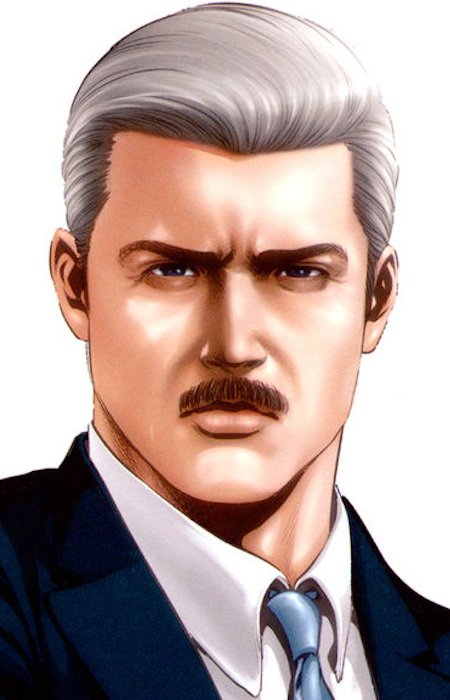Series & First Appearance
Series Title: Prison School
First Appearance: Chapter 1, "Prison School"
Creator: Akira Hiramoto
Profile at a Glance
Kurihara is the chairman of Hachimitsu Private Academy, and though he shows a more liberal approach to the institution’s policies, particularly in considering the admission of boys, he often finds himself at odds with more traditional members of the faculty and his own daughter, Mari. He presents as a middle-aged man, navigating the complexities of being both a figure of authority and an individual grappling with his own controversial interests.
Personality & Motivations
Kurihara balances a public persona of the liberal chairman with an undercurrent of personal eccentricity. He shows a progressive viewpoint on gender and education, desiring to enact changes at the academy, particularly the admission of male students. However, this often results in tension with his daughter, Mari, who leads the conservative underground student council. Kurihara possesses a somewhat scandalous secret regarding his fascination with adult content, which adds a layer of humor and complexity to his character. His willingness to challenge tradition marks him as a conflicted yet multi-dimensional figure.
Abilities / Powers
While Kurihara does not possess any supernatural abilities or combat skills typical of protagonists in other series, his strength lies in his intellect and ability to navigate the political landscape of Hachimitsu Private Academy. His persuasive nature allows him to influence school policies and interact with various factions within the institution, showcasing a blend of charisma and guile. His liberal ideologies often clash with the school’s established norms, presenting a personal challenge and a social commentary within the storyline.
Major Story Arcs & Growth
As the narrative progresses, Kurihara becomes increasingly embroiled in the school’s tensions, marked notably by his clashes with the underground student council led by Mari. His desire to foster a more inclusive environment at the academy reflects his willingness to embrace change, albeit at a personal cost as he deals with the fallout of his daughter’s potential disapproval. His secret interests create comical yet poignant moments, underscoring his vulnerability as a character and serving as a narrative device that enriches the show’s humor.
Notable Relationships
- Mari Kurihara: His daughter and president of the underground student council, Mari’s traditional views frequently contrast with Kurihara’s progressive stance, leading to familial conflict that serves as a key element of the story. Their dynamic showcases themes of generational conflict and differing ideologies.
- Faculty and Administration: His relationships with other faculty members present a continual tension, as many oppose his forward-thinking ideas, reinforcing the conservative traditions that the school is known for.
Iconic Moments & Quotes
In Chapter 10, during a heated argument regarding the admission of boys, Kurihara famously states, “Progress is not something to fear, but to embrace.” This line encapsulates his philosophy and serves as a rallying cry for those who support his vision for the academy. Fans appreciate this moment as it highlights his optimistic outlook amidst resistance from the established order.
Trivia & Behind-the-Scenes
- Voice Actor: Kurihara is voiced by Hiroshi Shimozaki in the Japanese version, which adds depth to his character with an engaging vocal performance that captures both comedic and serious tones. The English dubbed version features a different actor, contributing further to the character’s multilateral portrayal.
- Popularity Ranking: In character popularity polls, Kurihara has garnered attention, frequently appearing in the top rankings due to his humorous, yet relatable struggles, and complex family dynamics.
- Cultural References: The discussions surrounding his secret online activities offer a satirical take on generational divides in pornography and media consumption, reflecting broader societal conversations regarding privacy and personal interest.
Kurihara stands as a unique character within "Prison School," representing not merely a figure of authority but a complex individual caught between traditionalism and progressiveness, enabling a rich tapestry of narrative exploration.







